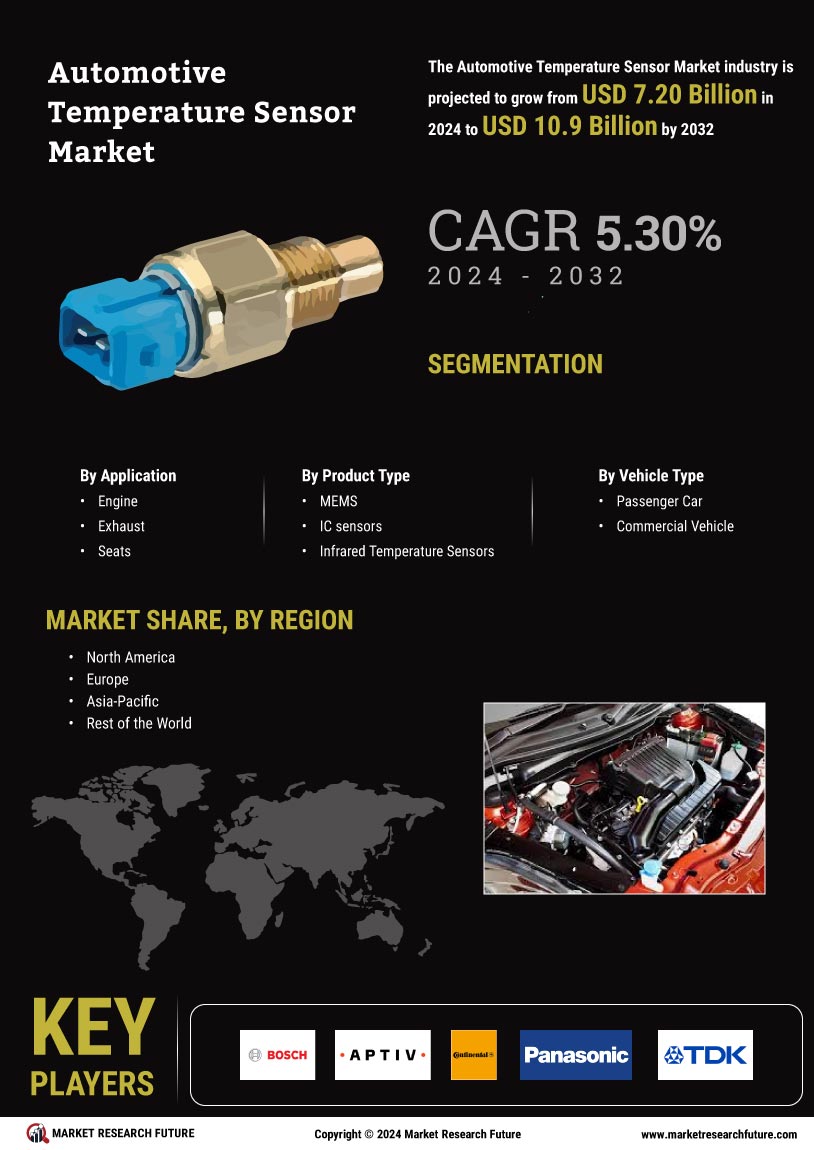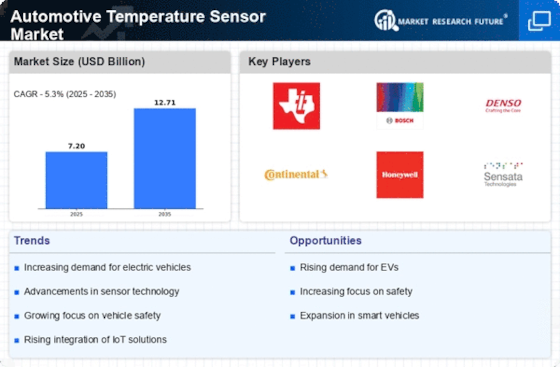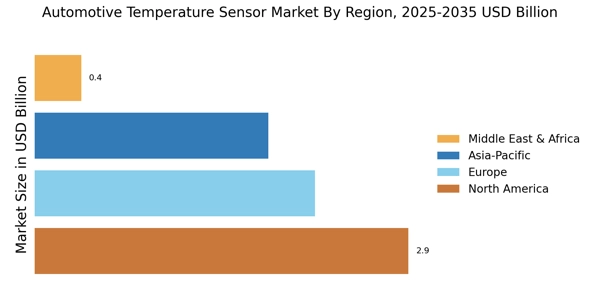The Automotive Temperature Sensor Market is currently characterized by a dynamic competitive landscape, driven by technological advancements and increasing demand for vehicle safety and efficiency. Key players such as Texas Instruments (US), Bosch (DE), and Denso (JP) are at the forefront, each adopting distinct strategies to enhance their market positioning. Texas Instruments (US) focuses on innovation in sensor technology, particularly in integrating advanced semiconductor solutions that improve accuracy and reliability. Bosch (DE), on the other hand, emphasizes regional expansion and partnerships, collaborating with automotive manufacturers to develop tailored solutions that meet specific market needs. Denso (JP) is heavily investing in digital transformation, leveraging data analytics to optimize sensor performance and enhance customer engagement. Collectively, these strategies contribute to a competitive environment that is increasingly centered around technological innovation and customer-centric solutions. In terms of business tactics, companies are localizing manufacturing to reduce costs and improve supply chain efficiency. This approach is particularly evident in the Automotive Temperature Sensor Market, which appears to be moderately fragmented, with several players vying for market share. The collective influence of key players is significant, as they not only drive technological advancements but also set industry standards that smaller competitors must follow. The focus on supply chain optimization is crucial, especially in light of recent global disruptions, prompting companies to reassess their operational strategies. In August 2025, Bosch (DE) announced a strategic partnership with a leading electric vehicle manufacturer to co-develop advanced temperature sensors tailored for electric powertrains. This collaboration is expected to enhance Bosch's product offerings in the rapidly growing electric vehicle segment, positioning the company as a key player in this niche market. The partnership underscores Bosch's commitment to innovation and its proactive approach to addressing the evolving needs of the automotive industry. In September 2025, Denso (JP) unveiled a new line of temperature sensors designed specifically for hybrid vehicles, incorporating AI-driven analytics to improve performance monitoring. This launch reflects Denso's strategic focus on sustainability and efficiency, aligning with the industry's shift towards greener technologies. By integrating AI capabilities, Denso aims to provide automotive manufacturers with enhanced tools for optimizing vehicle performance, thereby solidifying its competitive edge. In October 2025, Texas Instruments (US) expanded its product portfolio by introducing a new series of high-precision temperature sensors aimed at the automotive sector. This move is indicative of Texas Instruments' ongoing commitment to innovation and its strategy to capture a larger share of the market by offering cutting-edge solutions that meet the stringent requirements of modern vehicles. The introduction of these sensors is likely to enhance the company's reputation as a leader in sensor technology. As of October 2025, the competitive trends in the Automotive Temperature Sensor Market are increasingly defined by digitalization, sustainability, and the integration of artificial intelligence. Strategic alliances are becoming more prevalent, as companies recognize the need to collaborate in order to leverage complementary strengths and accelerate innovation. Looking ahead, it is anticipated that competitive differentiation will evolve, shifting from traditional price-based competition to a focus on technological innovation, reliability in supply chains, and the ability to meet the growing demand for sustainable automotive solutions.


















